Looted Liminal
Lesia Vasylchenko
23.6.2022 – 31.7.2022
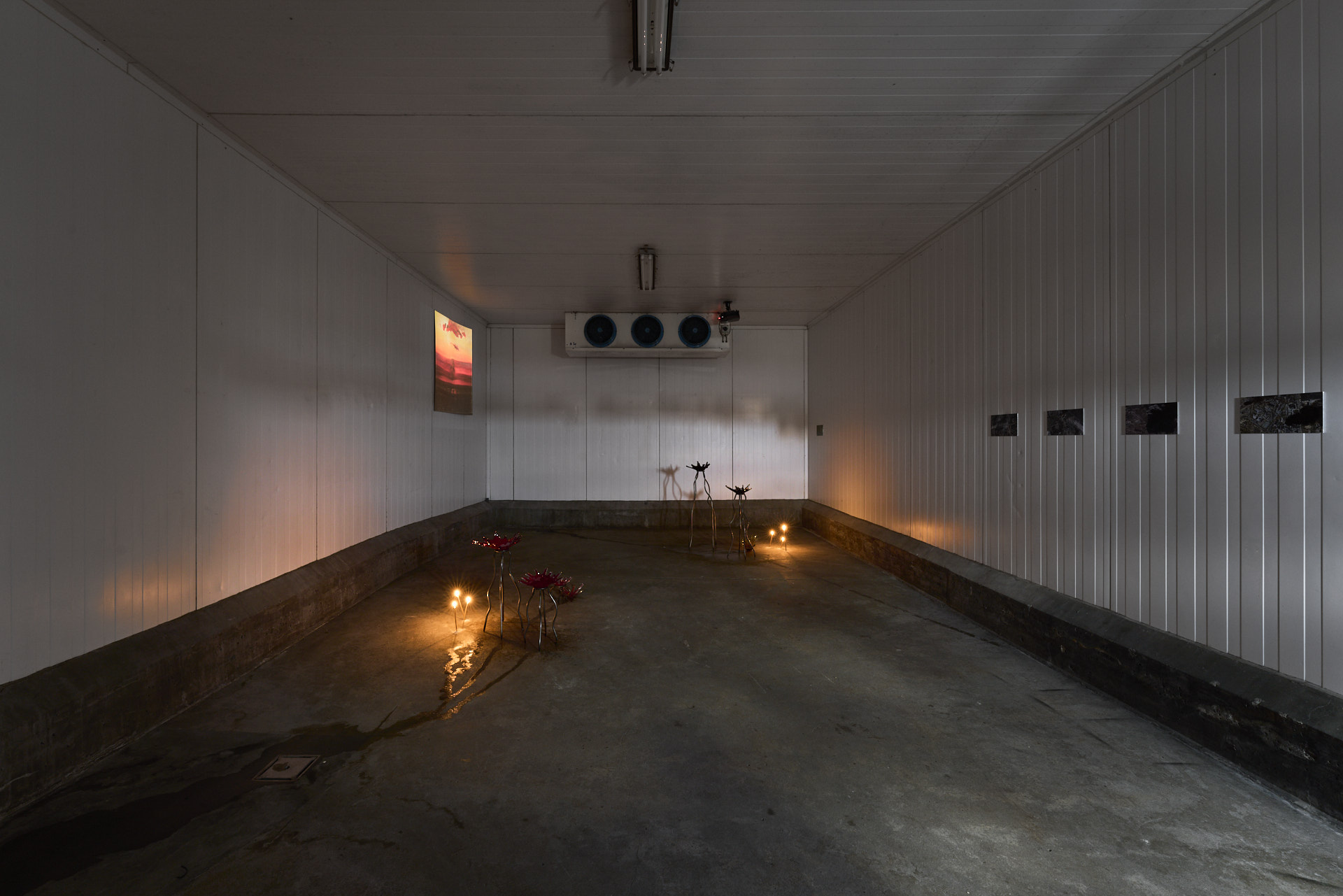

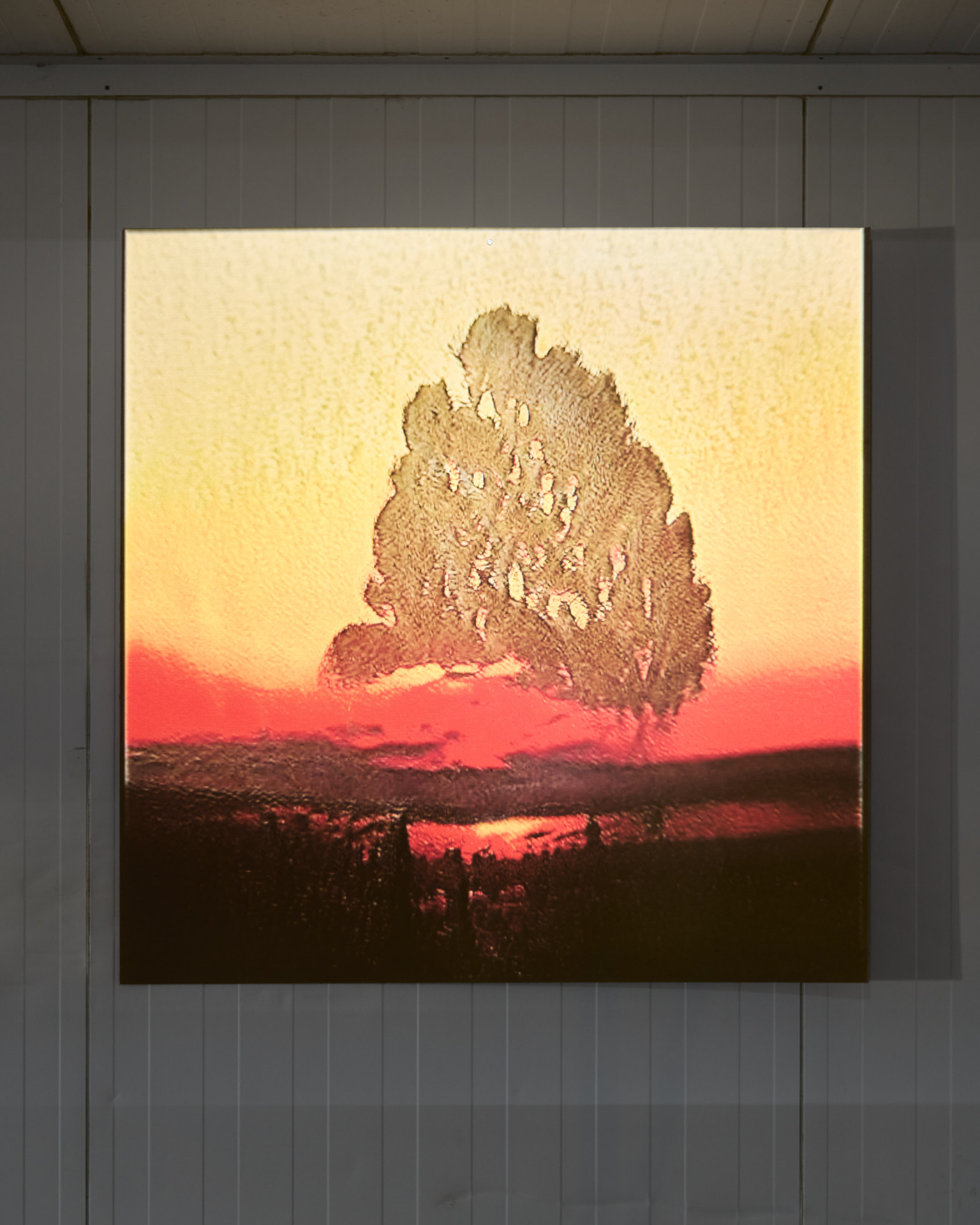




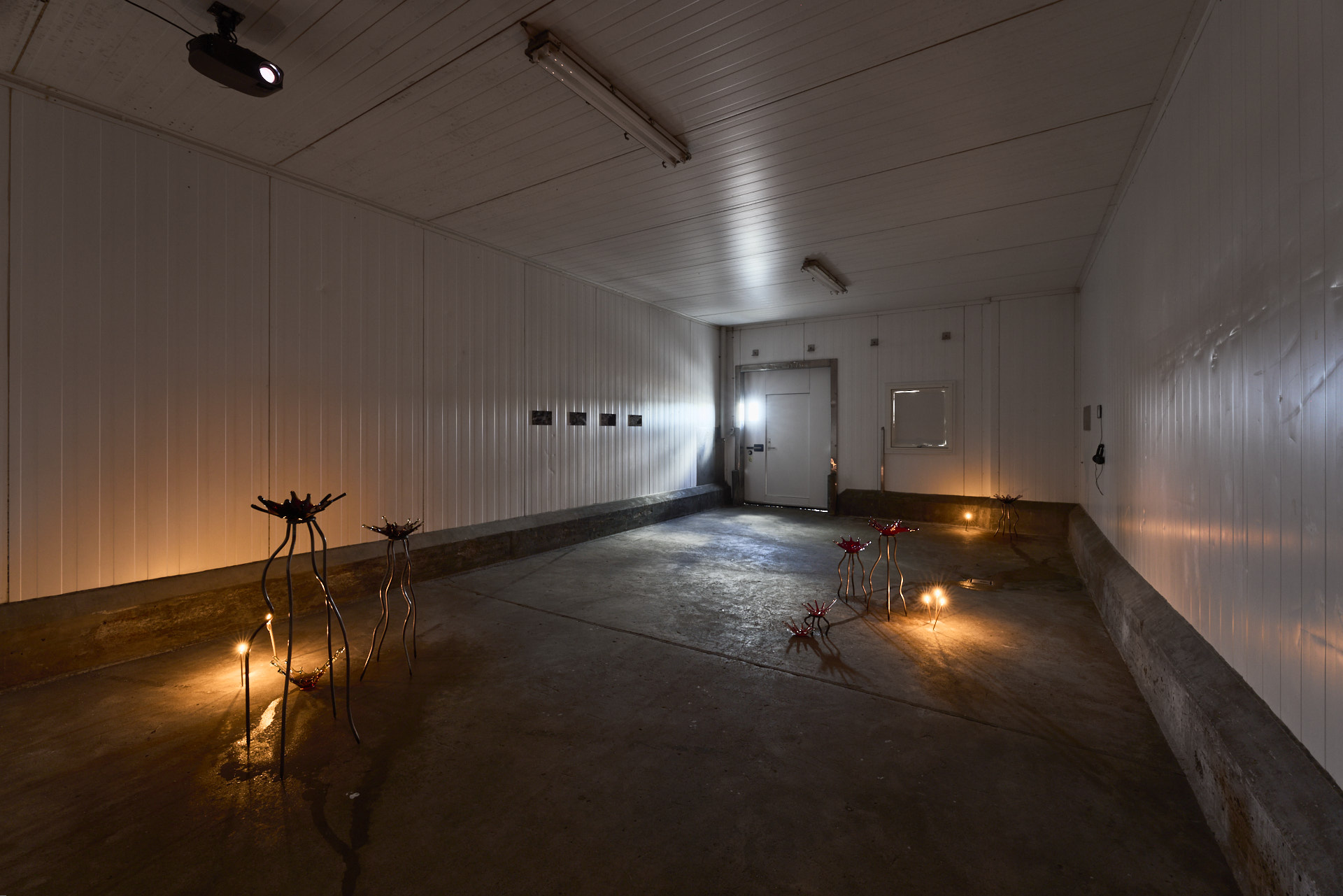


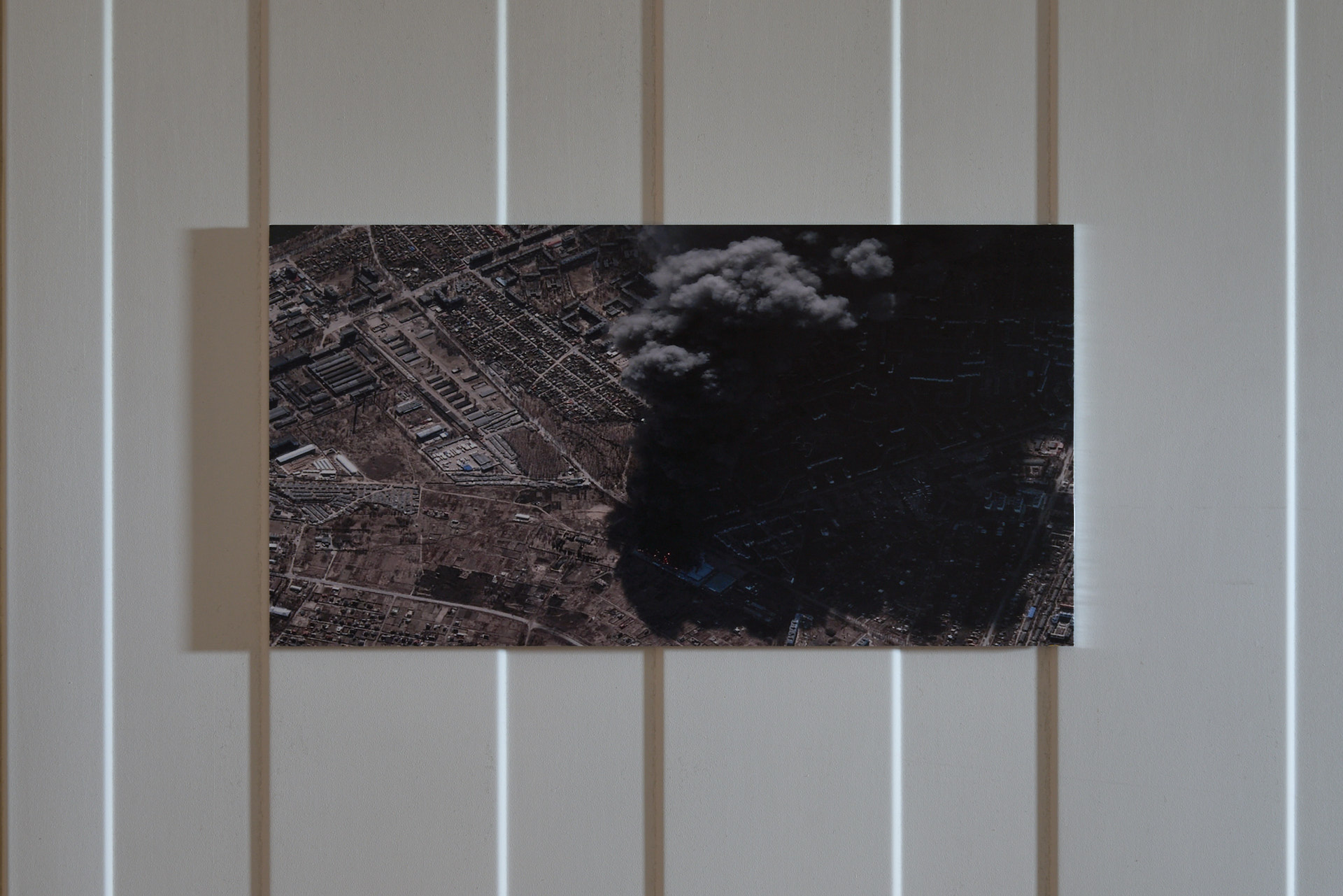
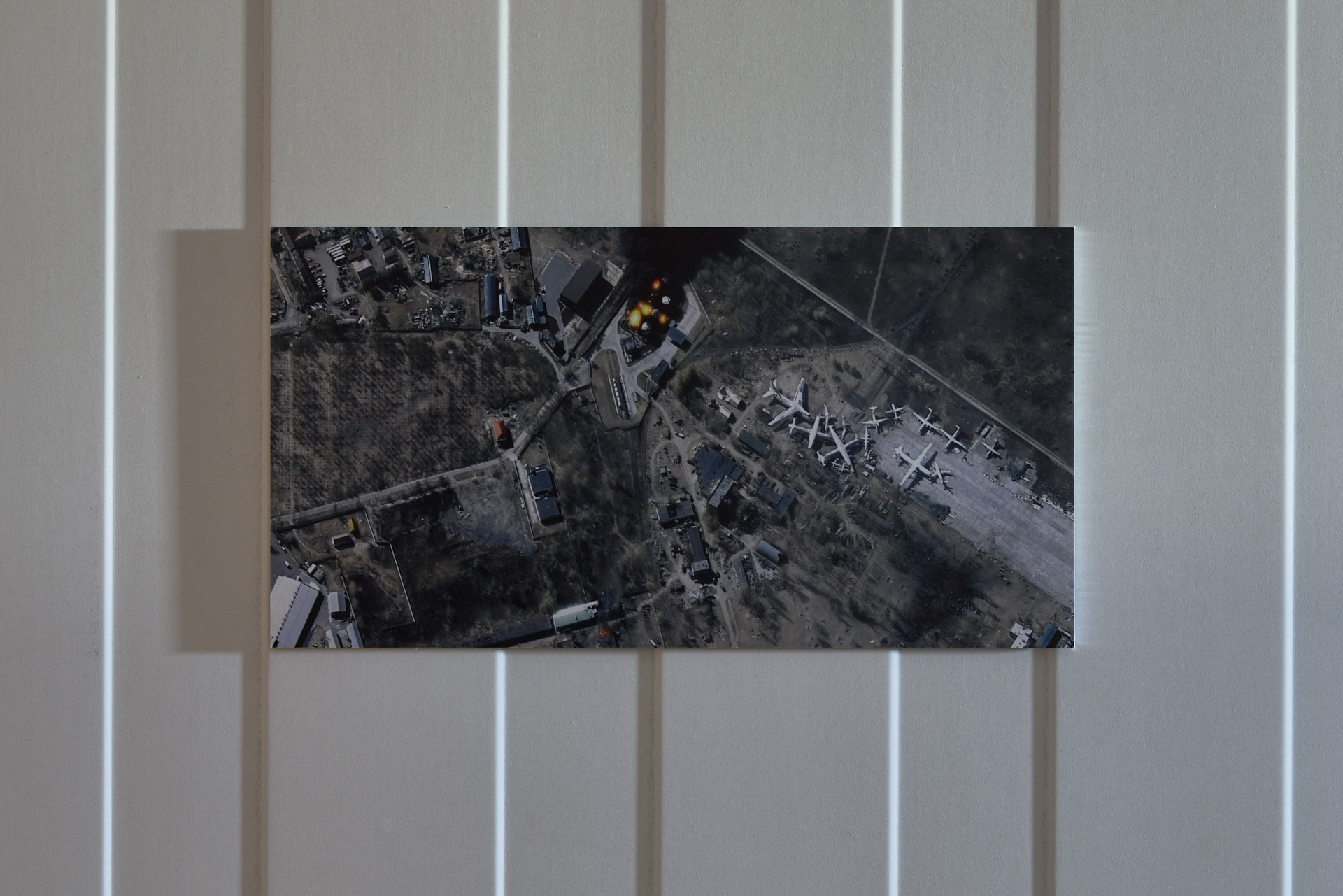

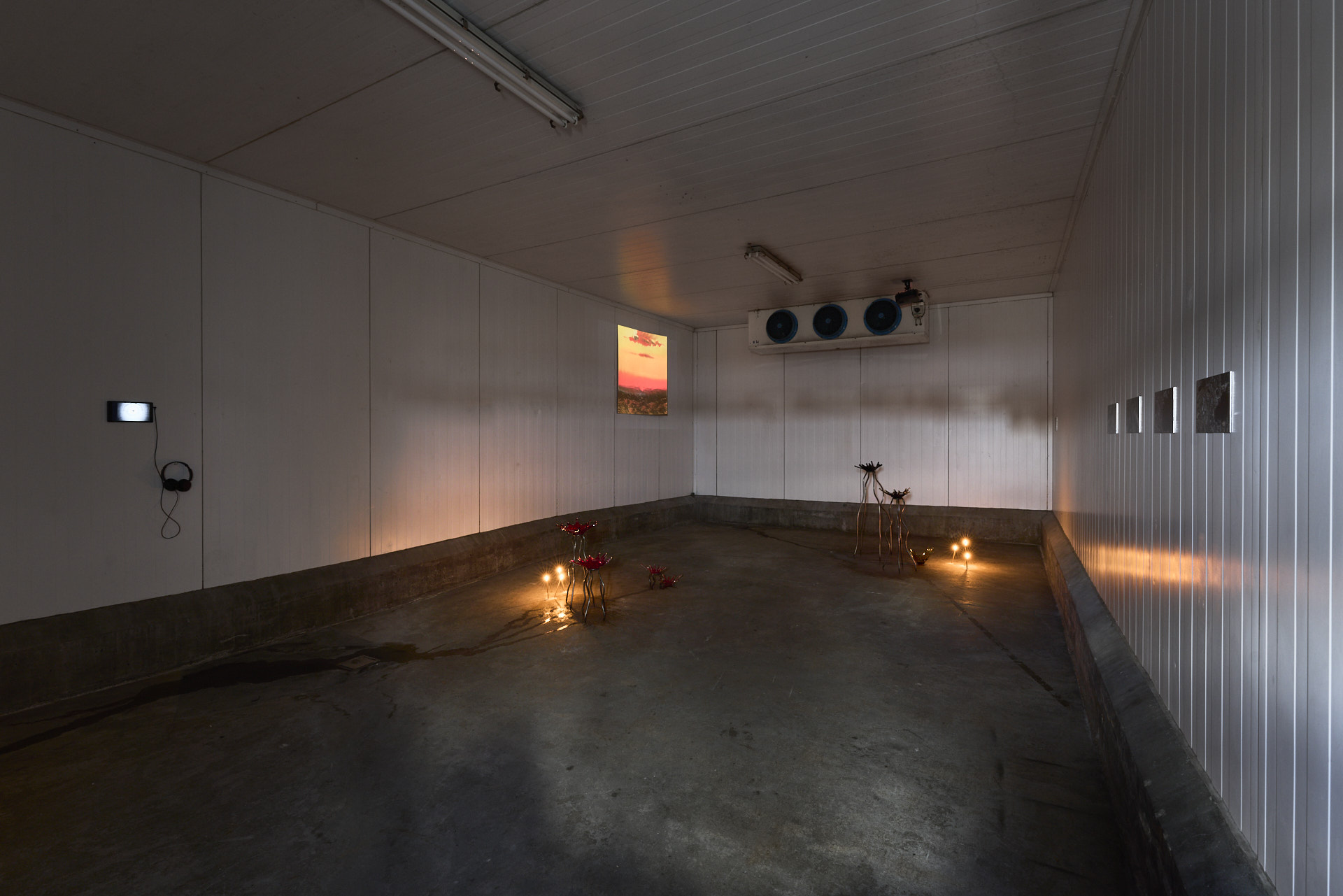
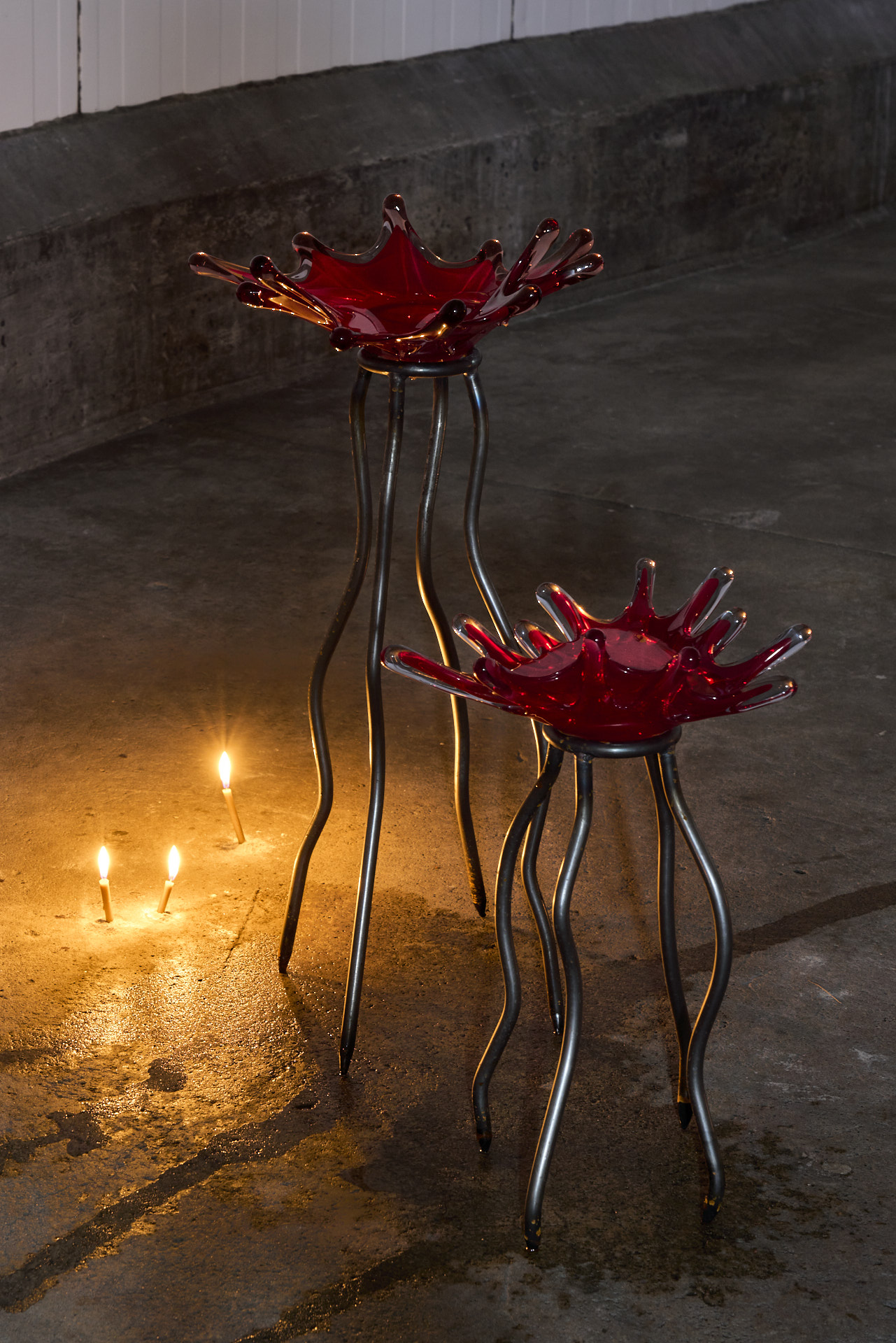
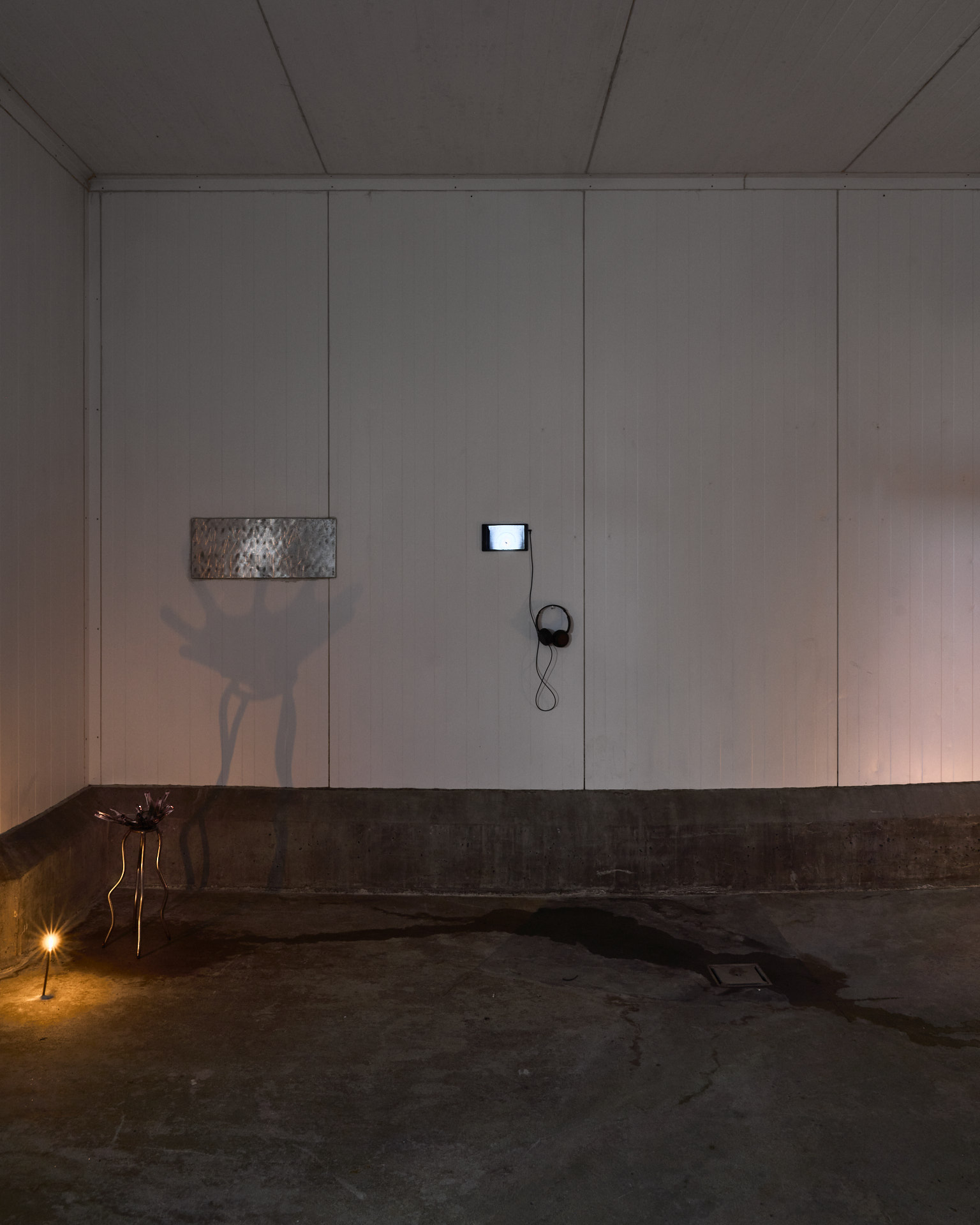

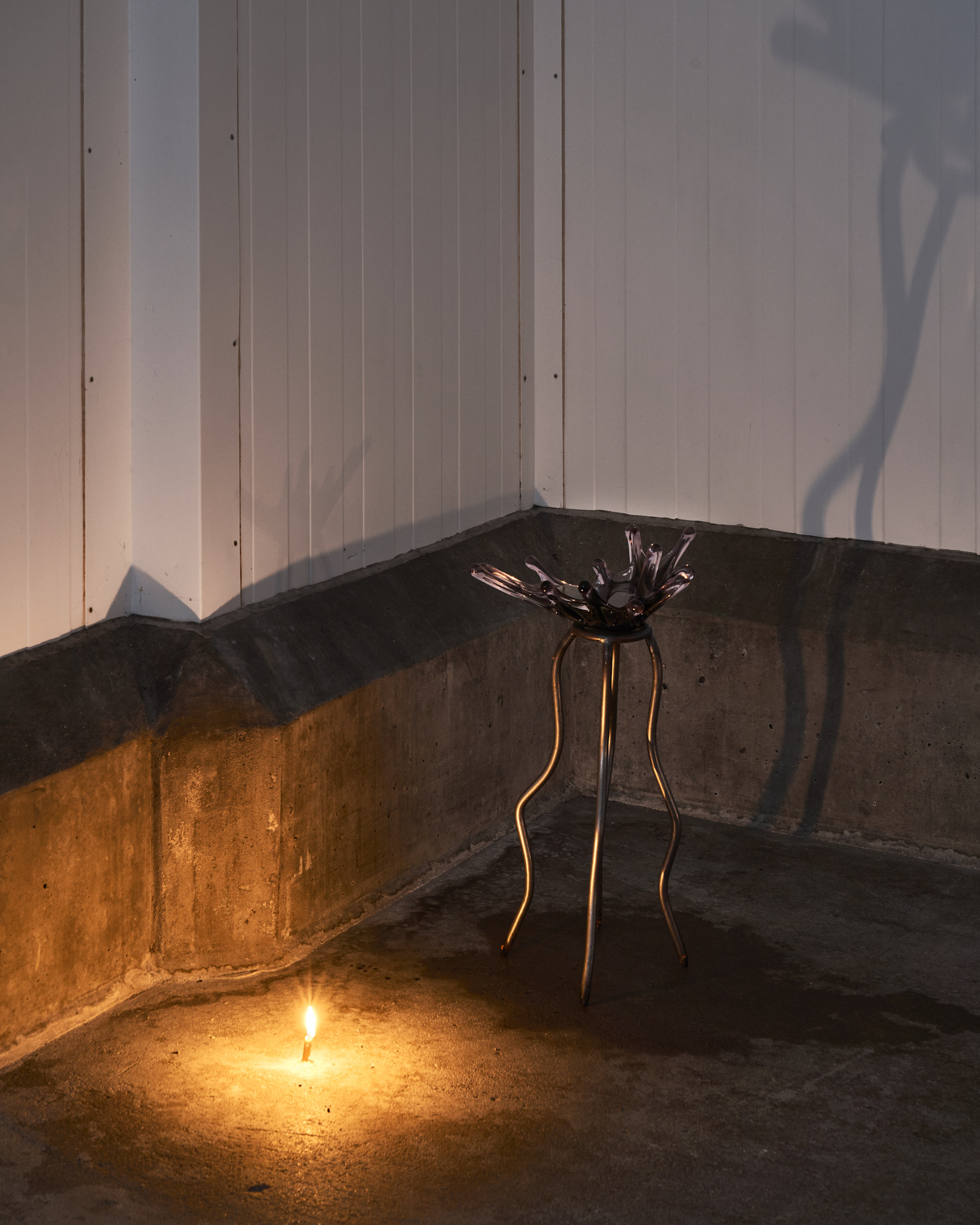

* Dansk version her *
For her exhibition in Sol, Lesia Vasylchenko has built an installation where different times and temporalities meet.
In Looted Liminal Vasylchenko explores temporalities of colonial oppression in relation to the current war in Ukraine. The exhibited works lead us through 19th century sunset paintings to contemporary planetary observation technologies and machine learning techniques. The exhibition raises questions around the role of information technologies in the production of political and social power structures – and, crucially, the role of the Image in these processes.
The installation is centered around a projection of the film Red Sunsets. The abstract video work is a result of a machine learning process, where images are run through algorithms which analyse them in order to generate new visual output. In this case, Vasylchenko has fed the machine learning code with images of all documented paintings of a Sunset by the Ukrainian realist painter Arkhip Kuindzhi. Most of the artists works are held by Russian Museum collections – and though Kuindzhi was born in Mariupol and lived most of his life in Ukraine, popular information sources (Wikipedia and Google Arts & Culture) still describe him as a Russian artist.
Only a few months ago, on March 21st, air bombs destroyed the Kuindzhi art museum in Mariupol. Dedicated to Kuindzhi, the museum displayed ephemera documenting the artists life, together with a broader collection of Ukrainian art. The Museum also had in its collection the last three remaining Kuindzhi works still in Ukraine – but before the attack, these were stolen and transferred to Russian territory. One of the looted Kuindzhi works (“Red Sunset”) was a sketch of a unique example of Ukrainian Luminism.
The projection is surrounded by an installation of glass sculptures that appear to be massive droplets of an unknown origin. Carried by metal structures, the work, Moments Frozen In Time”, evokes a flow of associations of fluidity, and clearness. But the objects also carry their own cultural history: being old Soviet ashtrays, typical domestic objects of design from the 70-80s, with their original purpose to hold what had been burned.
In another section of the exhibition space, Vasylchenko presents a series of printed SAR (Syntetic Aperture Radar) photographs of the current war in Ukraine as seen from above. These images are produced by satellites orbiting around Earth that can monitor our planet 24/7. With an impressive precision, they document the surface of our planet with decreasing delay as the technology constantly is improved. In the final part of the exhibition, Vasylchenko displays an excerpt from local news, documenting a public event in annexed Crimea, when the local clock was changed from Kyiv time to Moscow Time.
By juxtaposing objects and visual gestures from different times, Vasylchenko comments on the Imperial hegemonic order of synchronic vision of history and thereby, the misinterpretation of history. She asks us to rethink our temporal stance; to begin to view braided time as a tool of, and simultaneously, resistance to colonization.
–
Lesia Vasylchenko (born in Kyiv, Ukraine based in Oslo, Norway) is an artist and curator. Her work with installations, moving images and photography poses questions around temporality, history and memory. Vasylchenko is a co-curator of the artist-run gallery space Podium and a founder of STRUKTURA. Time, a cross-disciplinary initiative for research and practice within the framework of visual arts, media archaeology, literature, and philosophy. She holds a degree in Journalism from the Taras Shevchenko National University of Kyiv and Fine Arts from Oslo National Academy of the Arts. Vasylchenko has been exhibited at Louvre Museum, Paris; Haus der Kulturen der Welt, Berlin; Haugar Art Museum, Tønsberg; Tenthaus Gallery, Oslo; The Wrong New Digital Art Biennale, among others.
–
Looted Liminal is curated by Sofie Amalie Andersen and organised by the exhibition space Sol.
The exhibition is supported by Statens Kunstfond, Det Obelske Familiefond, Ny Carlsbergfondet and Møbelfabrikken in Nexø.
The exhibition opens on Thursday, June 23rd from 15-18h and can be visited Fridays from 15-17h as well as Saturdays and Sundays from 12-15h until July 31st
